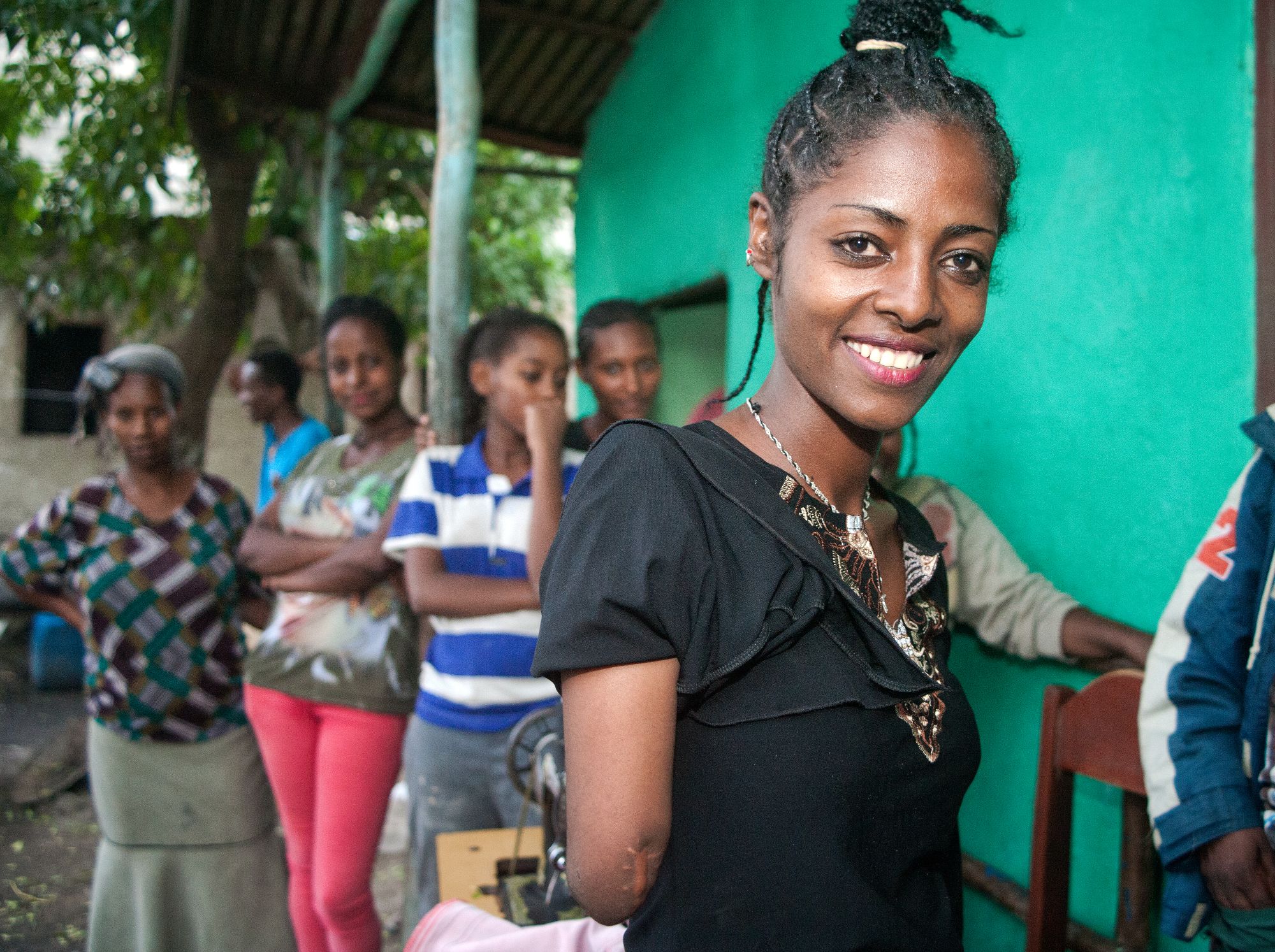
Marginalised young people with compounded vulnerabilities are particularly at risk of being discriminated, disempowered, and excluded from mainstream sexual and reproductive healh (SRH) services, policy and planning. Because of this, they are unable to fully realise their sexual and reproductive health and rights, resulting in consistently poorer sexual and reproductive health outcomes and a vicious cycle of poverty and exclusion. VSO and its partners, as part of the Make Way programme (2021-2025), aim to break down those barriers by applying and promoting an intersectional lens. But what is intersectionality? And how do we break down barriers? This and more we share in this update on Make Way from our 2021/2022 Annual report.
As part of a consortium consisting of pan-African and Dutch development organisations, we strongly believe that everyone – including the most marginalised youth – should be able to enjoy their sexual and reproductive health and rights (SRHR). For that to happen, change is needed at various levels. First, empowered young people facing compounded vulnerabilities need to claim their rights. Second, duty-bearers need to ensure access for all young people to quality SRH services. Third, societal attitudes need to shift towards respecting the SRHR of all.
To drive these changes, our five-year programme actively promotes innovation in the SRHR lobby and advocacy by applying an intersectional approach.
What is intersectionality?
Intersectionality is an analytical framework that helps us understand how aspects of a person’s social and political identities – such as race, gender, class, sexual orientation – combine to create different modes of discrimination and privilege.
Make Way in 2021/2022
In Make Way’s first half of year one, in the midst of the COVID-19 pandemic, we developed our consortium, governance and project management structures. Aware of the need to ‘shift the power’ (see box), we set up different, bottom-up decisionmaking and operational structures. A total of 47 civil-society organisations (CSOs) were brought in as collaborating partners across Ethiopia, Kenya, Rwanda, Uganda, Zambia, and at the regional and global level. Together, we co-designed the programming, which we will jointly implement in the coming four years.
Shifting the Power!
Our programme aims to strengthen and empower Southern-based and youth-led CSOs in their intersectional SRHR advocacy work. In 2021, we laid the foundations for this trajectory. For example, by setting up youth panels in all contexts and developing a strategy for meaningful youth engagement and leadership. Furthermore, by applying participatory decisionmaking structures and approaches such as MILE. In addition, we have put in place financial mechanisms to support the CSOs’ and youth panels’ advocacy work, including a flexible fund at country level.
Still in the first year, we studied our operational contexts, looking at the state of affairs for SRHR, health systems, socio-economic and political conditions and risks, and at the impact of religious norms. We also assessed our collaborating partners’ capacity for intersectional SRHR lobby and advocacy.
During the second half of the year, we started selecting, adapting and rolling out key tools to support intersectional SRHR lobby and advocacy – such as the youth-led, intersectional Community Scorecard (iCSC). These key tools will result in an open-access, user-friendly guideline (covering a range of topics: from understanding intersectionality, clarifying values and developing counter-narratives to performing intersectional research and policy review and analysis) which will facilitate effective, evidence-based intersectional SRHR advocacy.
What is the intersectional Community Score Card?
A scoring tool that is designed together with the affected youth to assess the acceptability, accessibility, affordability, and quality (AAAQ) of SRH services using an intersectional lens. The data that the tool generates are then used together with and by the youth/primary actors themselves to advocate health system strengthening and improving the AAAQ of SRH services towards duty bearers and other power holders. VSO is applying its ‘volunteering for development’ methodology in this process, by teaming national volunteers with global experts on social accountability and youth engagement. Next, starting from our guideline, we will strengthen our collaborating partners’ capacity to take on intersectional SRHR lobby and advocacy for, together with, and – when possible – by young people facing compounded vulnerabilities. This way we work on a structural, rooted solution that enables young people to claim their rights from their own government
The power of our collective action
We are grateful to all those individuals, institutions and companies who have worked with us in the last year. Together we have shown we can work with the most vulnerable to change our world for the better. This is the power of our collective action! Read our annual report and find out what more we have achieved in 2021/2022.
Fotocredits: Benno Neeleman
